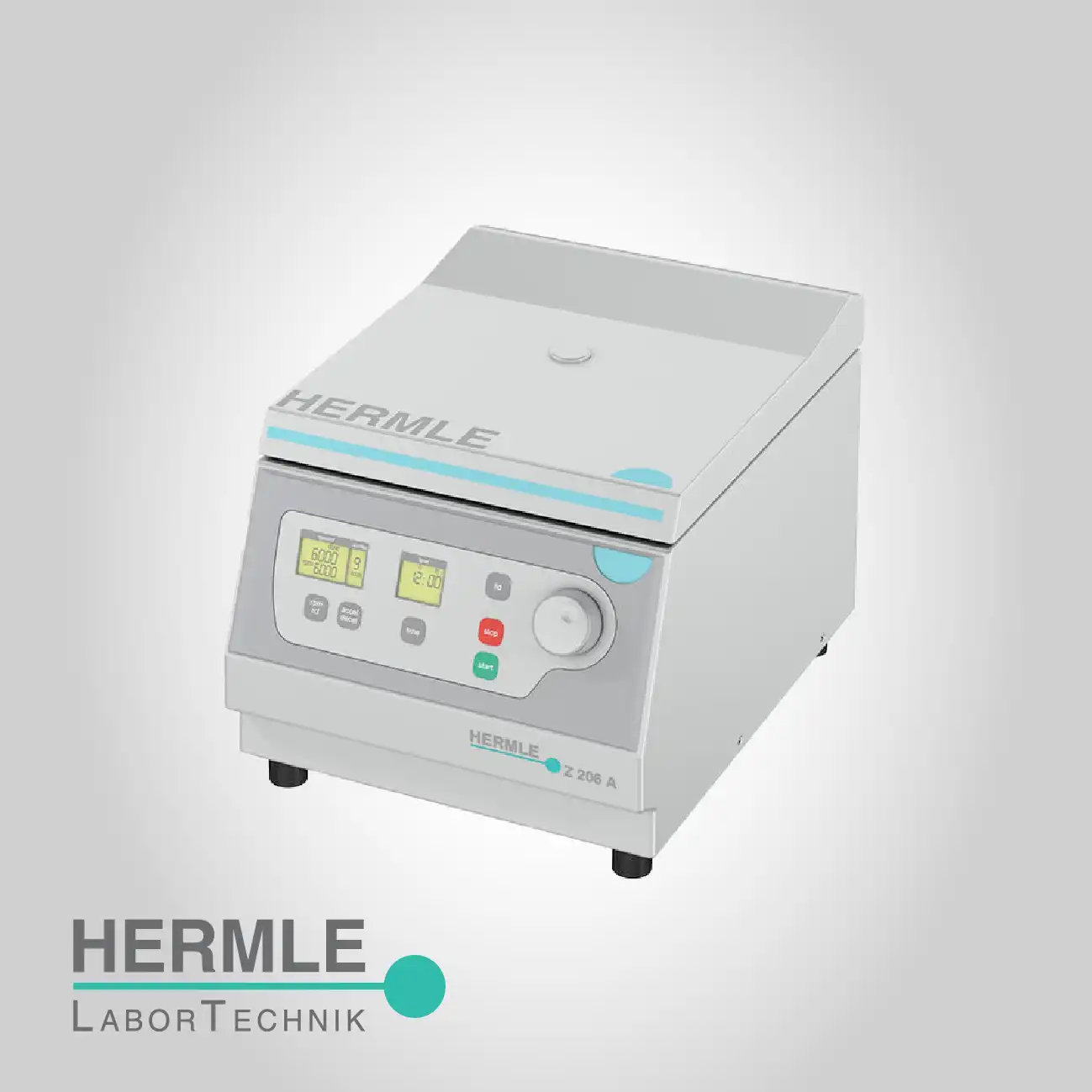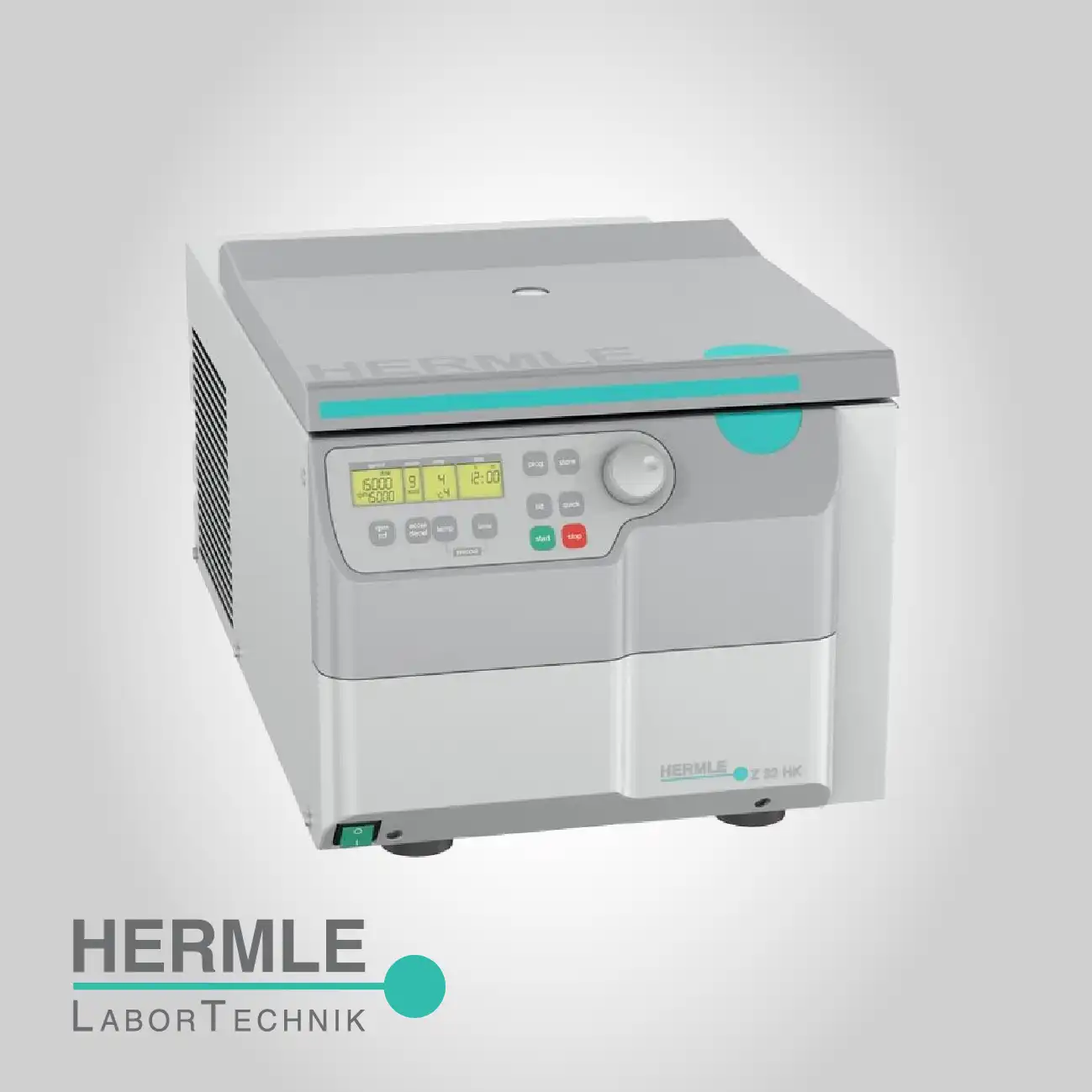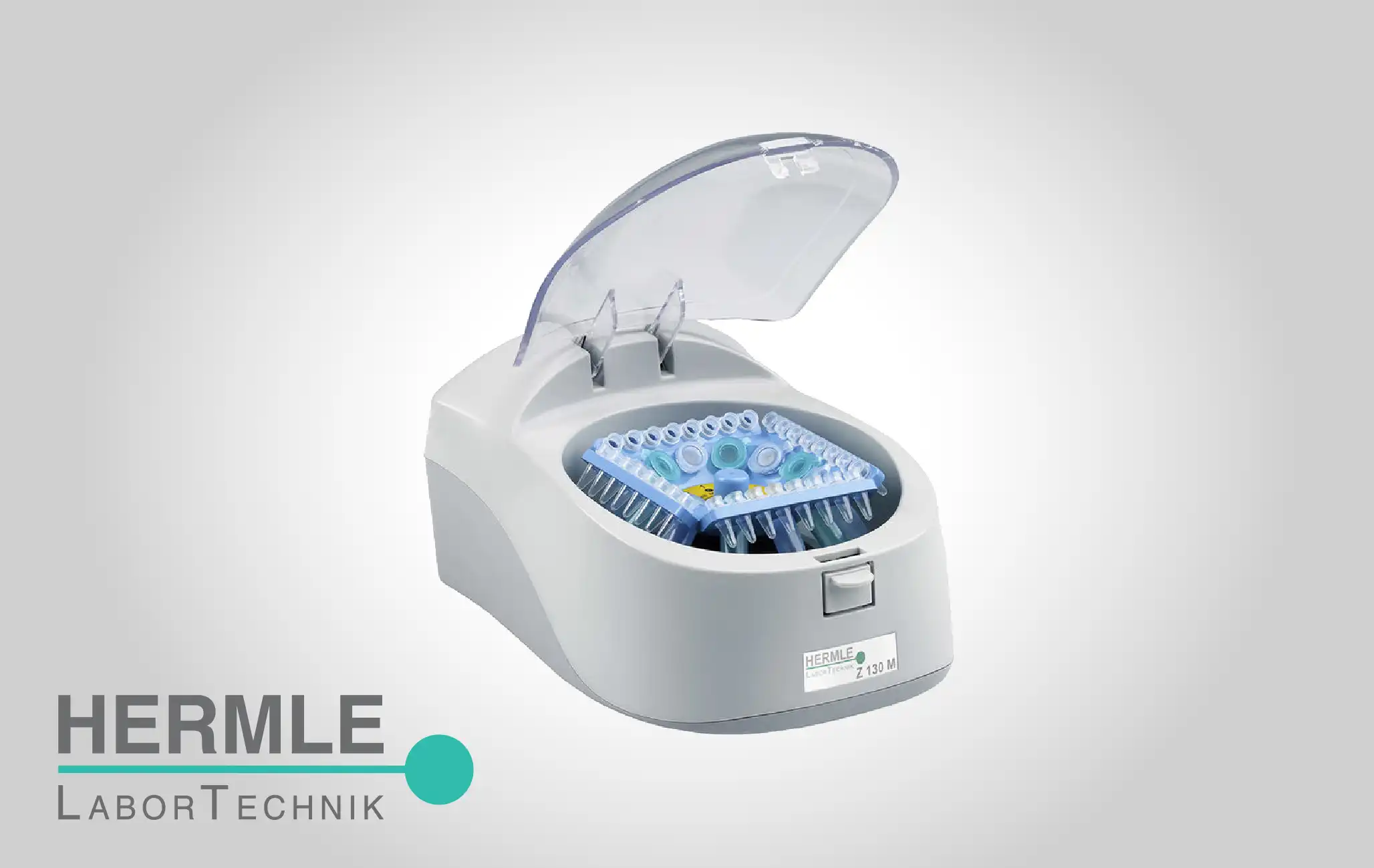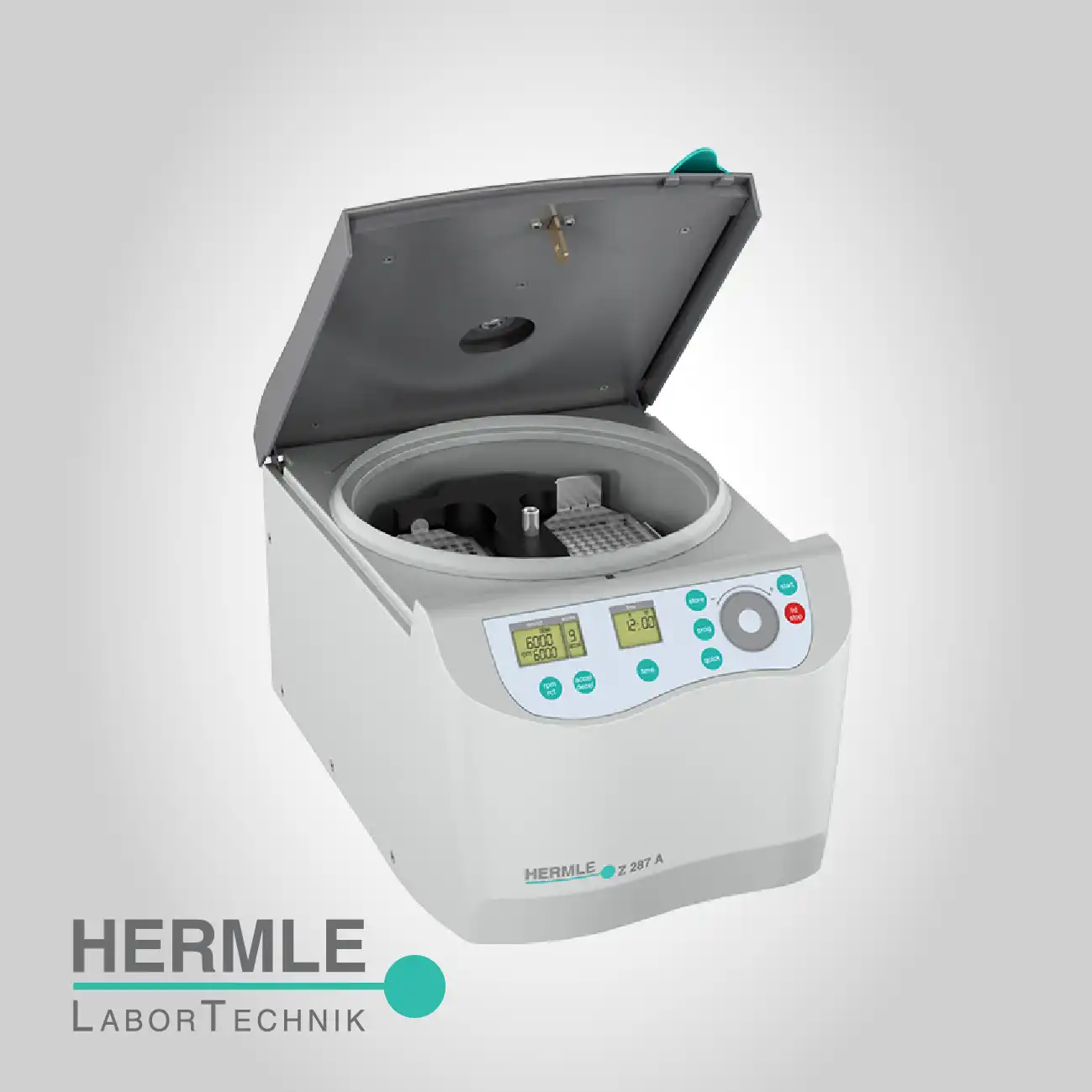
Filtration Centrifuge
Solid-Liquid Separation Rapid Dewatering Filtrate Clarification
Hermle Filtration Centrifuges
The technical distinction of this centrifuge type is its ability to separate a pure filtrate (liquid) from the solid phase, often leaving the solid cake distributed on the filter surface. This is achieved through specific rotor accessories that incorporate filtration baskets or porous elements, utilizing the generated RCF to force the liquid through the medium. The resulting filtrate is collected efficiently below the solid residue, providing a clean, ready-to-analyze liquid sample or a highly dewatered solid product.
These centrifuges significantly streamline sample preparation workflows that typically involve slow, cumbersome gravity filtration or vacuum filtration. By leveraging high RCF, the separation time is reduced from hours to minutes, drastically improving laboratory efficiency. This speed, combined with the clean separation of phases, ensures high quality input for subsequent analytical techniques, minimizing interference from solid residue.
A common pain point is the excessively long time required for gravity filtration or the mess and complexity of vacuum filtration for large-volume liquid clarification. Filtration Centrifuges solve this by using centrifugal force to drive the liquid through the filtration medium, reducing the separation time for several liters of sample from a full day to under an hour.
In many analytical protocols, residual solid contamination in the filtrate interferes with downstream spectroscopic or chromatographic analysis. These specialized centrifuges ensure highly efficient solid-liquid separation, resulting in a cleaner filtrate than possible with simple sedimentation, providing analysts with a purified liquid phase ready for accurate instrumental measurement.
The inability to recover a clean, dewatered solid cake for subsequent drying or processing can be a limitation of standard separation methods. The unique rotor and accessory design allows the solid phase to be evenly deposited onto the filtration medium. This facilitated collection and high degree of dewatering is essential for gravimetric analysis or efficient solid-phase extraction processes.
Handling specialized or proprietary filtration media (paper, membranes, glass fiber) often requires custom equipment. The accessory systems are designed to accommodate a variety of filtration elements and sizes, ensuring compatibility with specific pore size requirements for different applications, from pharmaceutical powder processing to environmental analysis.
The need to maintain thermal integrity during the filtration process is often overlooked, leading to compound volatility or precipitation. When refrigerated, these centrifuges can perform the filtration step under controlled temperature, ensuring that the physical and chemical state of the liquid phase remains stable during the necessary high-force separation.
Traditional batch filtration is prone to loss of solid material during transfer and scraping of the filter. The integrated centrifugal filtration system minimizes handling by containing the entire filtration event within the rotor accessory. This closed system approach maximizes material recovery and reduces the risk of sample loss and external contamination.
For quality control applications, the reproducibility of the dewatering process is critical. The digital control of RCF and spin time ensures that the filtration pressure applied to the sample is constant from run to run, resulting in a consistent final moisture content in the solid phase, which is a key metric in process control.
The risk of the filter medium collapsing or blinding under excessive pressure is a concern with high-RCF applications. The specialized rotor design manages the hydrostatic pressure across the filter surface, ensuring a uniform flow rate and preventing premature blinding or mechanical damage to the membrane, maximizing the effectiveness of the separation cycle.
Click here for more information about Hermle Centrifuges











